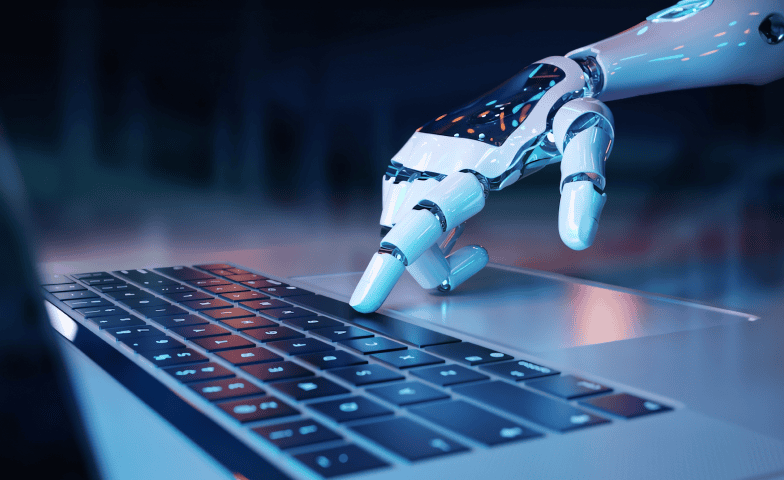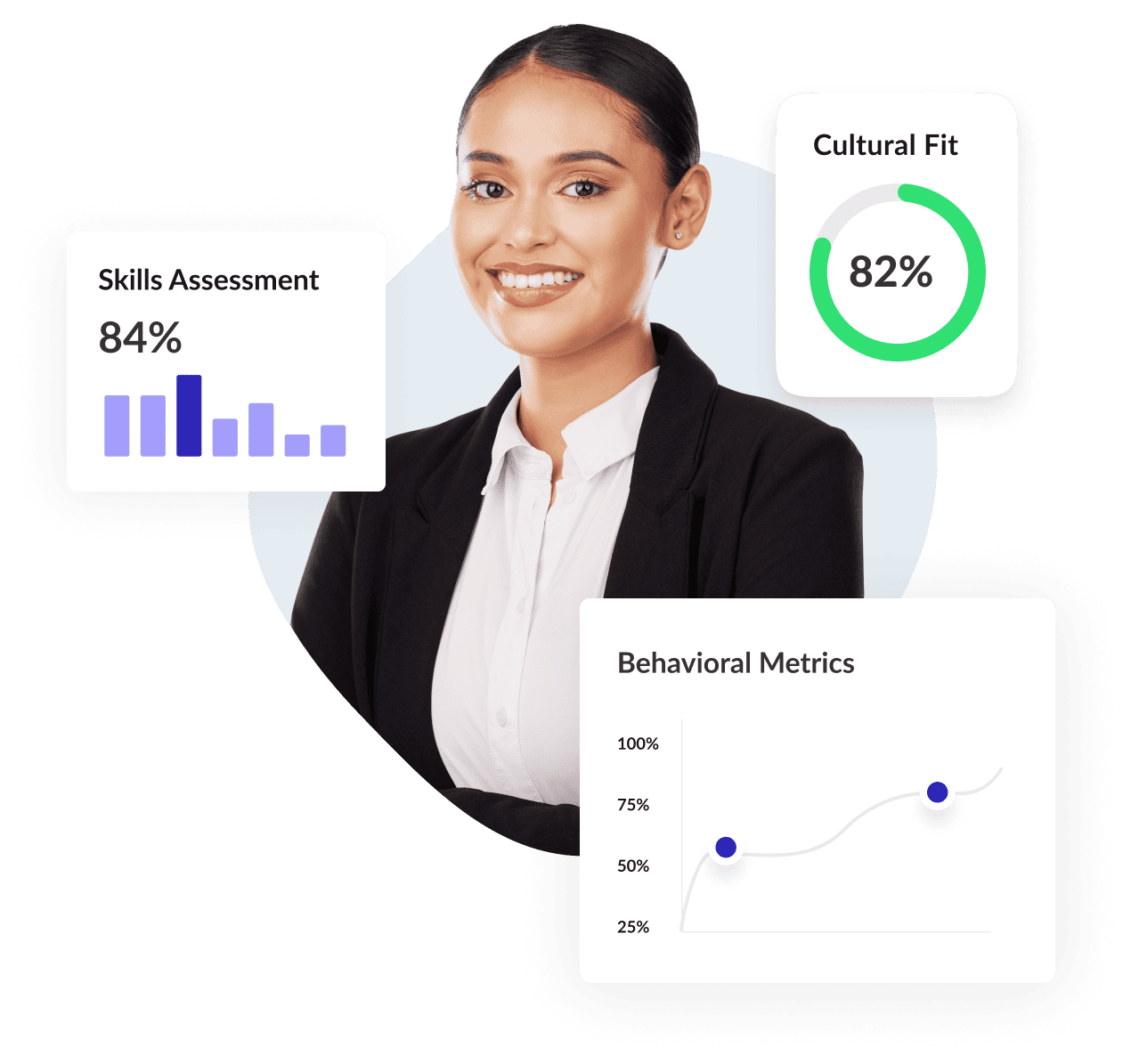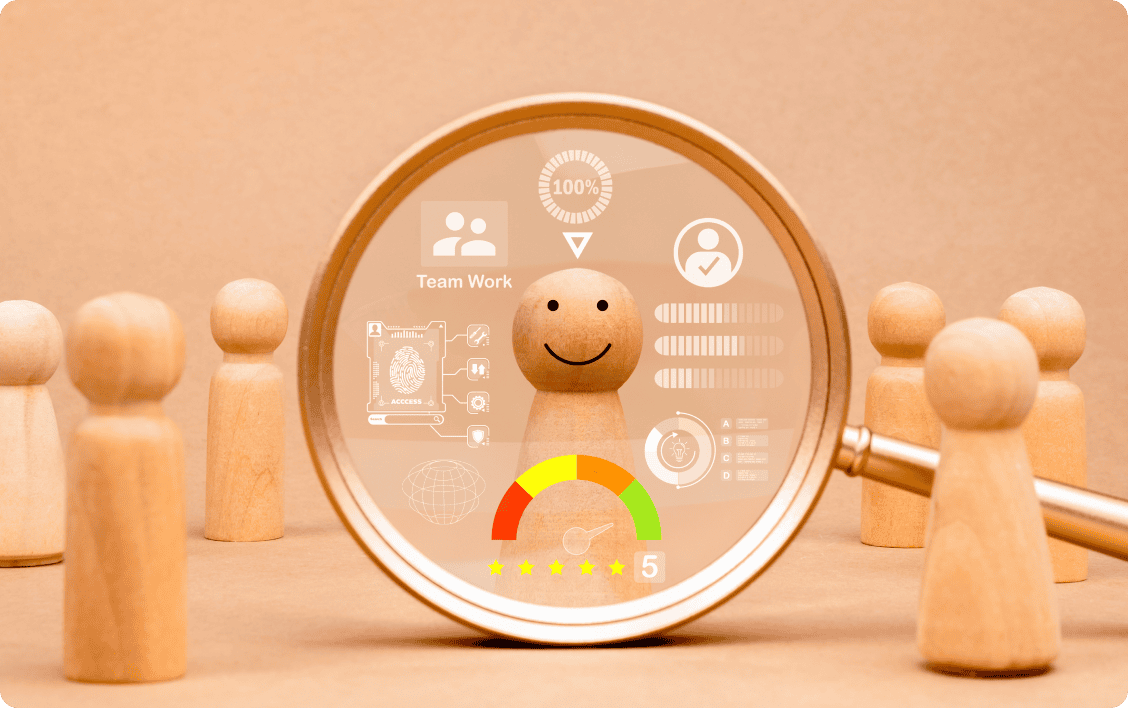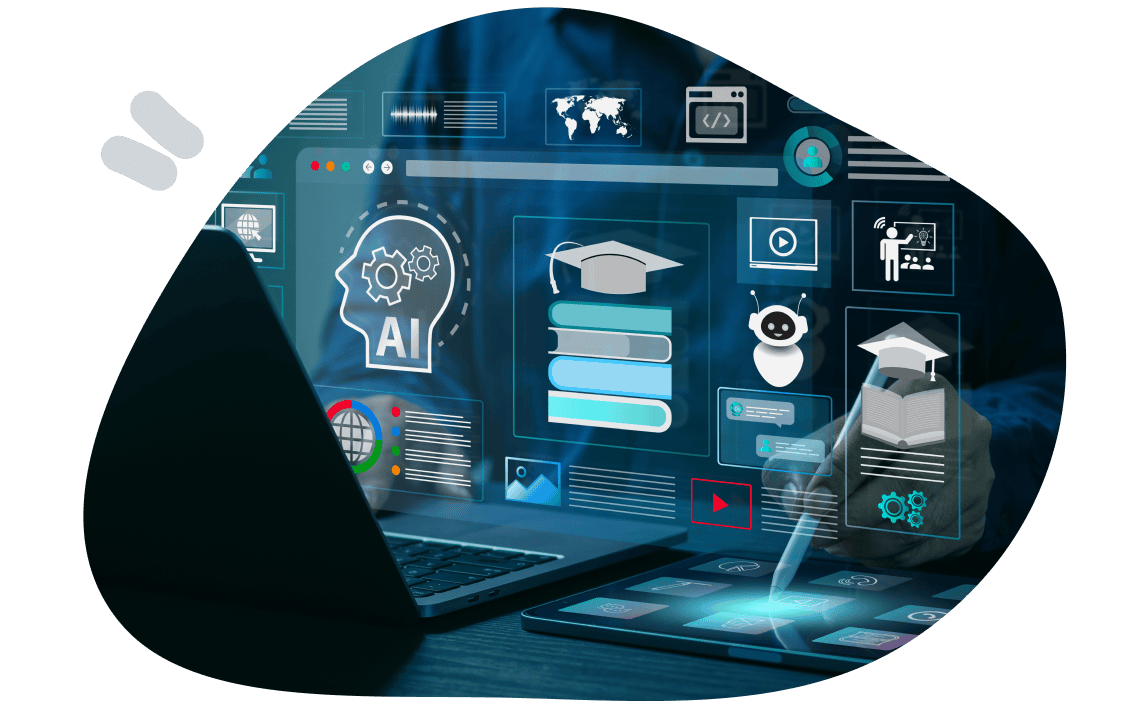
Ethical AI and Recruitment
While AI tools might be tested, not all are checked for ethics. How can you ensure that your hiring tools are not biased?

Talent intelligence will be every recruiter’s secret edge when it comes to hiring the best talent. A solid business plan can only take an organization so far. Social and skills data from candidates can now be pooled into a digital storehouse and analyzed at record speed. Now, qualifications and work history—what’s on the resume—are only a part of the hiring picture.
With the boom of remote and distributed work, teams that thrive in the digital age will break through the bounds of location and timezones. Different from people analytics, talent intelligence zooms in on skills instead of personal characteristics. So, what is talent intelligence, and how will it shape the trajectory of recruitment? Let’s take a deeper dive.

Talent intelligence definition: A strategy that uses data and technology to make smarter, more accurate decisions when it comes to managing people in an organization. It involves collecting and analyzing information about employees, candidates, and the job market to make decisions on recruitment, skill development, and workforce planning.
By leveraging AI and analytics, talent intelligence helps organizations spot skill gaps, predict future hiring needs, and improve the overall employee experience. In short, talent intelligence is all about using data to match the right people with the right roles and make more well-informed decisions about talent.

Skills data is the cornerstone of talent intelligence. Organizations can make better, more accurate decisions on recruitment, talent development, and workforce planning. This data helps HR teams identify skill gaps, forecast future talent needs, and meet business objectives. Ultimately, leveraging skills data helps maximize employee potential and drive innovation.
In recruitment, skills data in talent intelligence include:
Technical skills:
Soft skills:
Industry-specific skills:
Certifications and qualifications:
Language skills:
From significantly lessening hiring biases to hiring better employees, talent intelligence is for organizations of all sizes. By tapping into powerful insights, HR teams can focus on what truly matters—skills, potential, and cultural fit—while minimizing biases that can often creep into the hiring process. The result? A more diverse, inclusive, and skilled workforce.
Talent intelligence aims to answer important HR questions like:
What skills does our workforce have, and where are the gaps?
How can we improve candidate sourcing and recruitment?
What are the emerging skill trends in the job market?
How diverse is our talent pool?
Who are the best-fit candidates for a particular role, and why?
What’s the potential for internal mobility?
How do we reduce turnover on our talent strategy?
What are our most effective recruitment channels and strategies?
“I think what you really want is an extremely high talent bar of people at any age. A strategy that says, ‘I’m only going to hire younger people’ or ‘I’m only going to hire older people,’ I believe, would be misguided.”
Human Capital Management (HCM) platforms can help organizations evaluate and analyze their internal talent. Ambitious business goals from lower turnover rates to higher employee satisfaction require planning. Talent intelligence gives insight into what employees want, how to retain them, and what constitutes meaningful work.
Examples of talent intelligence occurring around the world already and in the near future include:
Netflix’s content creation team sourcing
Netflix uses talent intelligence to optimize hiring processes for creative roles, such as scriptwriters, directors, and other content creators. By analyzing past successful projects, Netflix has improved the talent quality and ensured the right creative people are aligned with their strategic goals.
The Adecco Group’s talent matching and career coaching
The Adecco Group employs talent intelligence to match candidates with job opportunities using AI and predictive analytics. They analyze factors like skills, work experience, and personal preferences to create personalized career paths. The platform also offers career coaching for more accurate job placements and higher job satisfaction for candidates.
LinkedIn Talent Insights
LinkedIn offers Talent Insights, a data-driven platform that helps HR teams and recruiters understand market trends, talent pool availability, and competitor hiring strategies. By analyzing data from LinkedIn’s vast user base, the platform provides valuable insights into skills gaps, hiring demand, and the competitive landscape for talent in specific industries or regions.
IBM’s Watson for Talent
IBM uses its own AI-driven platform, Watson for Talent, to boost their talent acquisition and management efforts. The system leverages machine learning and natural language processing to analyze resumes, match candidates with the right job roles, and assess cultural fit. Watson’s ability to analyze vast amounts of data lets IBM know who to hire, promote, or train.

With AI, there’s potential for overfitting and noise in datasets. To mitigate this, work with a dedicated HR people analytics team to monitor any discrepancies and outliers. For talent intelligence to be effective, the data must be accurate, up-to-date, and comprehensive. Poor data quality, such as outdated resumes or incomplete employee records, can lead to incorrect conclusions.
Also, data fragmentation comes into play as talent intelligence relies on data from various sources, including recruitment platforms, employee performance data, and learning management systems. These data sources are often siloed, which makes it difficult to integrate and analyze them comprehensively.
AI and machine learning models are only as good as the data they’re trained on. If historical data reflects biased hiring practices, the algorithms may perpetuate those biases. This can lead to unfair or even discriminatory recruitment processes and employee assessments—before a live interview is conducted! Because of this, ongoing DEI initiatives are critical.
The role of AI in recruitment will continue to skyrocket in popularity as organizations reimagine and refine their hiring strategies. AI will evolve to identify and reduce bias in the hiring process. By focusing on candidate skills and qualifications rather than gender, ethnicity, or age, AI could help create a more equitable recruitment process.
Automated skills assessments will explode in popularity, with candidates being asked to complete tests or simulations that reflect actual job responsibilities, which allows organizations to determine whether candidates have the skills to perform well in a role.
Talent intelligence uses a variety of data, including employee skills, performance data, resumes, past job experiences, market trends, and external job market data. It also integrates data from HR systems, such as employee engagement, training, and turnover rates—to optimize and leverage workforce strategies.
Organizations and CHROs can make smarter hiring decisions through talent intelligence by identifying skill gaps, predicting future workforce needs, and enhancing employee development. It leads to better alignment between talent and business goals, faster hiring processes, and more effective employee retention strategies.
There will be warning signs that an organization needs to hone and rethink their talent intelligence strategy. High turnover rates, long recruitment times for candidates, poor person-role fit, and dwindling employment engagement are a few to watch out for. HR technology can help identify areas to work on before they escalate.
From multiple sources: Job boards, aggregation sites, background verification, HCM platforms, as well as ATSs and extensive employee networks. With the data gathered from multiple sources, organizations can make better short-term and long-term recruitment decisions and predictions for more productive teams.
Modernize your hiring process with expert insights and advice.